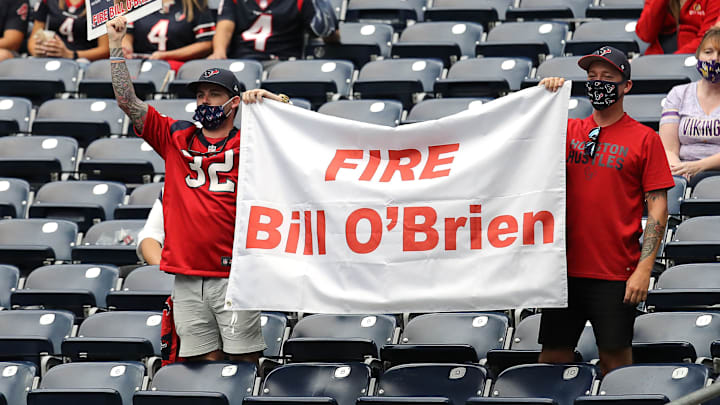The Houston Texans are in a place to succeed for years to come. They seem to have the most important pieces across the board; a general manager, a head coach, a franchise quarterback, and a well-run organization that supports and facilitates all three. Things are good, and we may be seeing the team have a franchise-altering run, never before seen. Success is expected, and fans demand it.
After all, it's been a long time since we've seen the Texans this stacked, and this motivated. This could be the year when everything changes for the franchise. Where they are taken seriously as a squad, and where the NFL as a whole changes the way they look at them.
For far too long the Texans have been a team that struggled to get the notoriety that they long for. Long seen as the younger siblings of the Dallas Cowboys, and thus not to be taken nearly as seriously, the Texans have toiled for most of their 22 years of existence to change their perception. Well, that time may almost be upon us.
Yet, it shouldn't have taken so long. It's far more likely that the team could've found success, at least more than they did, nearly a decade ago when the team brought in Bill O'Brien to be their head coach. He came to the Texans in 2014 and had one of the most successful runs of any of the team's head coaches in franchise history. He appeared to be a good coach and a lot of guys saw great growth under him.
Yet, as good as he was as a coach, he was even worse as the team's general manager. Ironically, a role he never wanted in the first place. Speaking to "Next Up with Adam Breneman" (via CBS Sports), O'Brien revealed that he ended up with the GM role because the team couldn't find anyone to take the job, and after one season filling in, he was given the role. Saying;
""That was a tough time in Houston. We were a good team. ... We went after some guys (for the GM role). We couldn't get 'em. And at the end of the day, we went a full year without a GM, really. Myself and another guy did it. And then there was a year where they were like, 'Well, we're just gonna make you the GM.' ... In the end, that's not who I am. That's another lesson learned.""
He didn't do well. We all know that. The biggest example was the failed trade of DeAndre Hopkins to the Arizona Cardinals, but how many failed renegotiations or failed free-agent acquisitions may never truly be known. O'Brien admits that he wasn't good at the job, as it asked him to do things he didn't like to do. Like, negotiating contracts.
That was a major reason why Hopkins got traded in the first place. He wanted a new deal and O'Brien didn't want to give him one or didn't give Hopkins one that Hopkins liked. So O'Brien traded him for what he could. So considering how bad that whole situation went, it's not surprising to hear him talk about how little he enjoyed that aspect of team building, going further on to say;
""I didn't really enjoy being the GM. I didn't enjoy negotiating contracts. In some respects, I lost relationships with some of the guys that I was coaching ... In my opinion, there's very few guys in the history of football that can ever (be a coach and GM simultaneously), and they're the greatest of the greats. I feel like I'm a good coach. ... I know how to evaluate talent. But I shouldn't be negotiating contracts and things like that. So, in the end, that was a mistake by me, and I wish I really didn't do that, to be really honest with you.""
Outside of Bill Belichick, there isn't a head coach in the modern era who could coach a team successfully, while also serving as the squad's general manager. You have to be able to separate those actions. You need to have two different men so that the onus and pressure aren't entirely on one. If you're the head coach, and the general manager doesn't want to extend a contract, or re-sign someone to a much larger contract, you can still keep your relationship with said player intact. After all, it wasn't you (the head coach) who didn't want to pay the guy.
So you create the ability to keep the head coach able to nurture relationships with players, without putting the added pressure of worth and value on top of it. When you combine those roles, then all of a sudden you lose the ability to shield the coach from these types of relationship-altering conversations. Those scenarios can kill a locker room and end careers. It's exactly what happened to O'Brien, as his tenure ended in Houston because many assumed he lost the locker room.
He probably did. It's hard not to. That said, O'Brien is a top-three coach all-time with the Texans, and that can't be denied or ignored. We're happy that he's aware of his shortcomings and we hope that his new head coaching job at Boston College goes better for him now that he's learned some valuable lessons.
